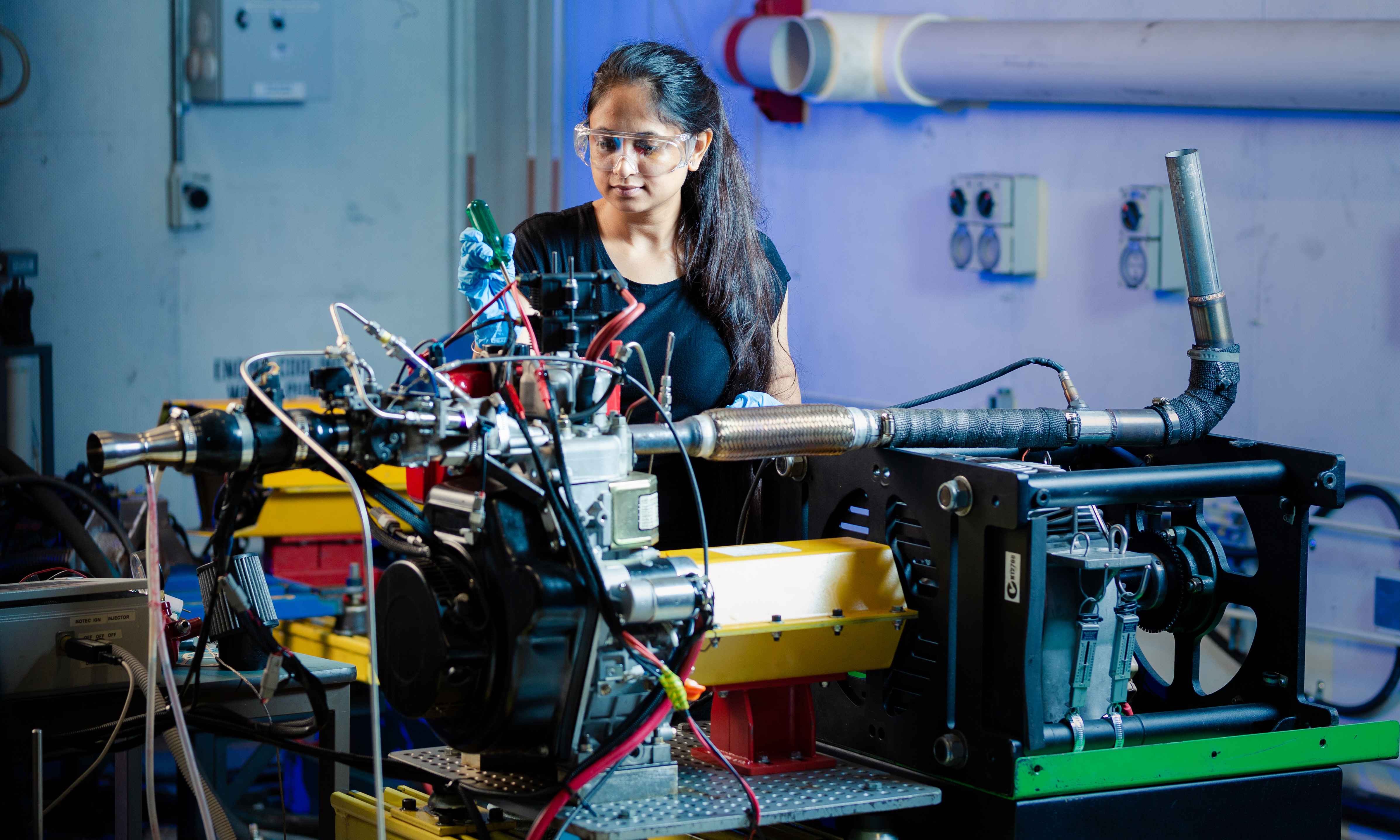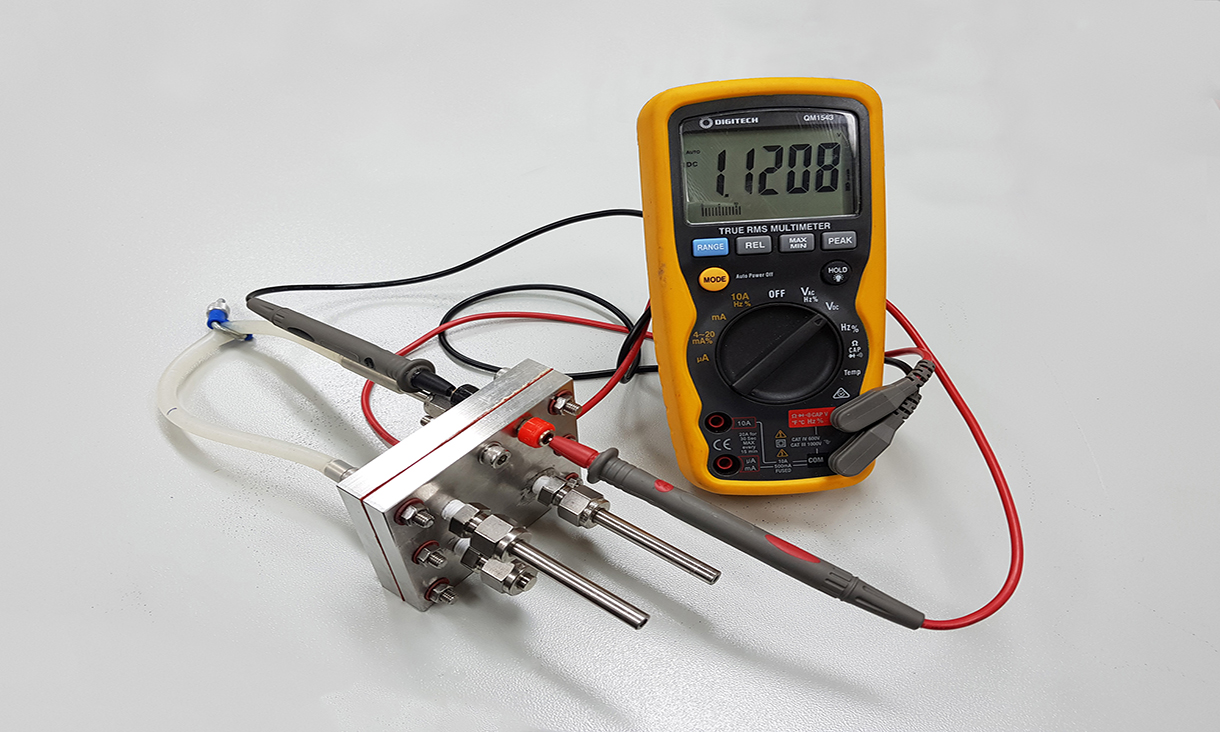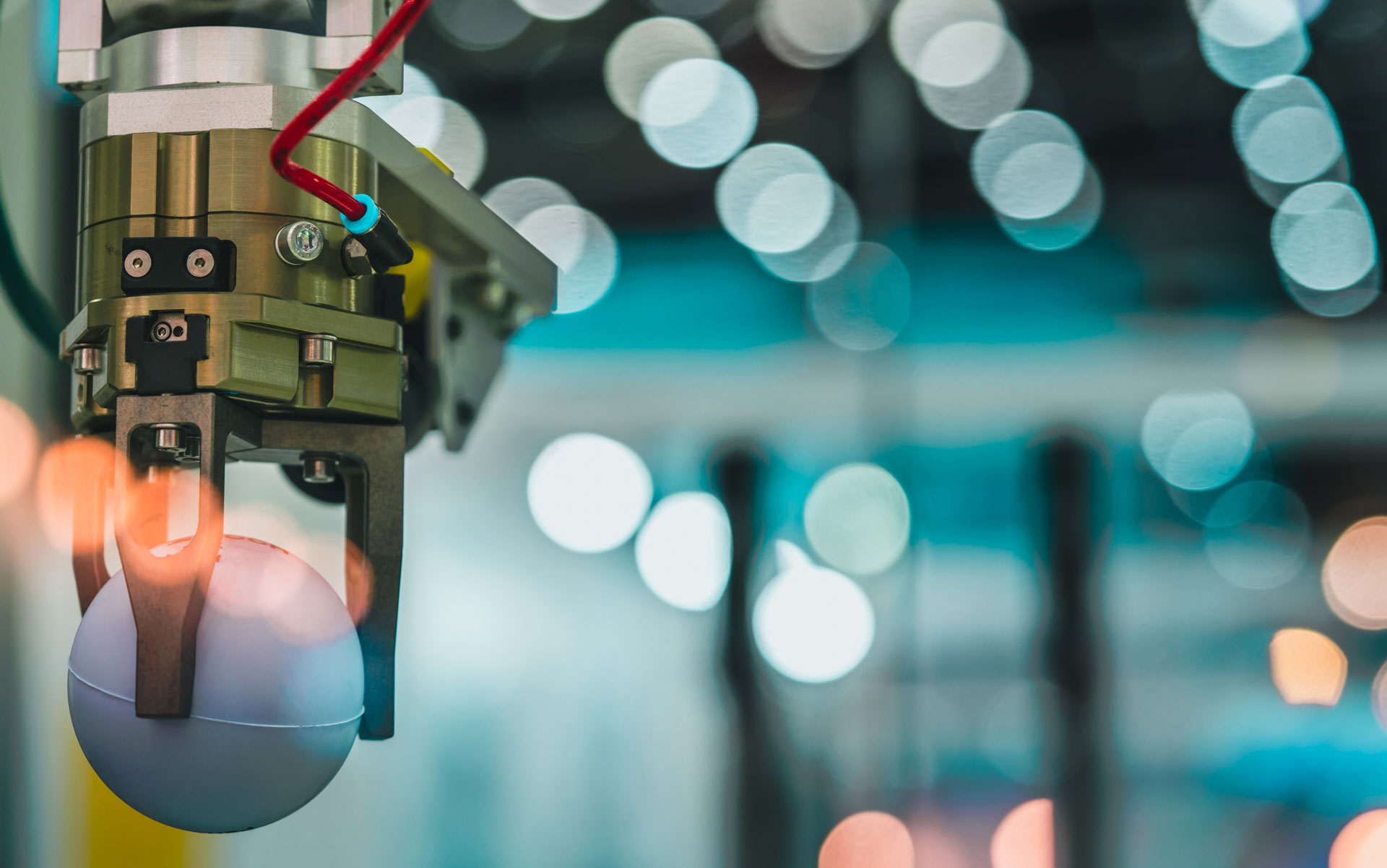Research focus
We push the limits of the possible in our research areas by employing design thinking, computational simulation, control systems and multi-scale approaches that range from the nanoscale to complex engineering systems.
Our current research is focused on the following areas.
Mechanical engineering
- Structural dynamics and computational engineering
- Composite, light weight, stronger, and new materials
- Optimal design, system design, machines and mechanisms
- Finite element analysis (FEA) and Computer-Aided Design (CAD)
- Multi-scale and multi-purpose robotic systems
- Dynamics, vibration, stability, and control of dynamic systems
Sustainable energy engineering
- Solar-thermal systems
- Hydrogen energy systems
- Photovoltaic systems and new generation of solar cells
- Sustainable desalination
- Energy efficiency
Automotive engineering
- Autonomous and self-controlled vehicles
- Human Machine Interface (HMI) and ergonomics
- Alternative fuels, clean engine, hydrogen power generators
- Noise, vibrations and acoustic
- Vehicle dynamics and stability
- Transport vehicle safety
- Application of artificial intelligence in mechanical systems
Sports engineering
- Swim suit
- Helmet
- Ski suit and board
- Sports shoes
- Ergonomics in sport engineering
Our impact
We work with a vast range of Australian and global organisations to provide practical, efficient, and economical solutions across civil and defence industries. Some of our major industry partners include:
- Airbus
- Defence Science Institute
- Rheinmetall Defence Australia (RDA)
- DefendTex
- Department of Defence (Australia)
- Department of Defence (USA)
- Ford Motor Company Australia
- General Electric
- LEAP Australia
- Thales
- Australian Motor Industries
- Honeywell
- Siemens
- Toyota Australia
- Fujikura (Japan)
- ADEKA Corporation (Japan)
- Eldor Corporation (Italy)
- Jayco Australia
Highlights of our current research include:
- Hydrogen power supply solutions for stationary and mobile applications
- New methods for bulk hydrogen storage and transport
- Semiconductor quantum dot solid solar cells
- Metal halide perovskite solar cells
- Photocatalytic nanomaterials for water treatment
- Solar water splitting
- Sustainable water treatment and desalination
- Energy efficiency and waste energy recovery
- Heat pipe technologies for thermal management solutions
- Human-machine interface and interaction
- Autonomous farm robotic systems
- Alternative fuel and green engine technology
- Nonlinear-parametric dynamic systems stability analysis
- Attitude dynamics control of satellites
- Safety and road traffic rules reviewing
- Computer aided biomedical research using CFD modelling and 3D printing
- Innovative design of composite fabrication process
- Predictive modelling of building ventilation
- Vehicle and sensors simulation for the Autonomous Combat Warrior (ACW) program
Research centres and groups
Our expertise and facilities contribute to many research organisations across Australia.
Facilities
- Renewable energy park
- Noise and Vibration Laboratory
- Advanced Manufacturing Precinct
- Green engines laboratory
- Flight simulator laboratory
- Industrial wind tunnel
- Sustainable hydrogen energy laboratory (SHEL)
- Advanced thermo-fluid laboratory
- Composites laboratory
- Wet chemistry laboratory
- PV characterisation laboratory
- Laser spectroscopy laboratory
- Autonomous Systems laboratory
Who we are
Mechanical and Automotive Engineering staff



